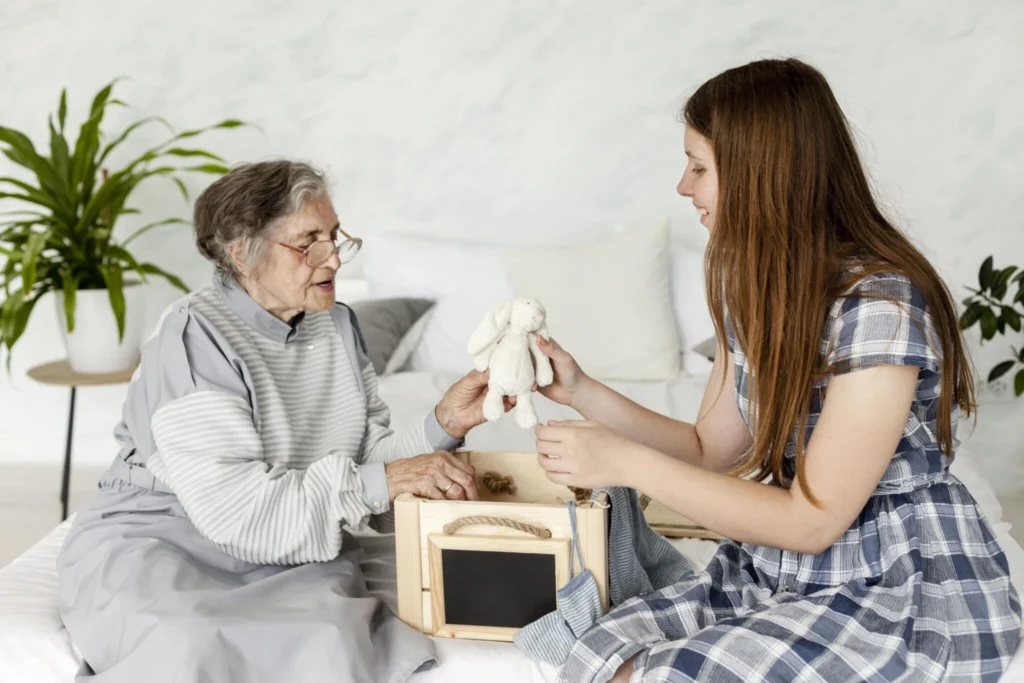Disability Care Services are led by NDIS Registered Complex Care Specialists/Nurses
Disability Care Services are led by NDIS Registered Complex Care Specialists/Nurses
“Expert disability care for Autonomic Dysreflexia management and support.”
Autonomic dysreflexia could be a genuine issue in individuals with SCI, particularly in people with spinal cord injuries over the T6 level. It is typically caused by utilizing boosts underneath an unsafe level, resulting in a sudden and excessive increase in blood pressure. Strict control is fundamental for the security and well-being of all involved. At Active Homecare Nurses, we center on disability care and are specialists in dyslexia, giving comprehensive and compassionate care for you and your family.

Autonomic Dysreflexia in Spinal Cord Injury is triggered by stimuli that the injured spinal cord can’t properly process. Common triggers include:
Bladder Issues: An overfull bladder, infections, or stones can cause dangerous blood pressure spikes, necessitating regular monitoring and management.
Bowel Problems: Constipation or bowel distension can provoke episodes, highlighting the need for a consistent bowel management program to prevent discomfort and complications.
Skin Irritations: Pressure sores, tight clothing, or ingrown toenails can irritate the skin and trigger dysreflexia, requiring diligent skincare and regular checks to ensure patient comfort and safety.
Other Stimuli: Pain, sexual activity, menstrual cramps, or temperature changes can act as triggers, underscoring the need for comprehensive and personalized care to manage these factors effectively.
Symptoms of dysreflexia vary but often include:
Severe Headache: A sudden, intense headache indicates a dangerous rise in blood pressure and requires immediate attention to prevent serious complications.
Flushed Skin: Noticeably above the injury level, this indicates dilated blood vessels and an abnormal autonomic response that needs to be addressed promptly.
Sweating: Excessive sweating above the injury site signals the body’s distress, and quick intervention is needed to prevent further issues.
Nasal Congestion: A stuffy or runny nose often accompanies dysreflexia, reflecting autonomic system involvement that requires careful monitoring.
Blurred Vision: Visual disturbances or seeing spots indicate severe dysreflexia and the need for immediate care to protect the patient’s health.
Anxiety: Feelings of unease or apprehension signal the body’s distress, requiring prompt management to alleviate symptoms and ensure patient comfort.
Bradycardia: A slow heart rate can accompany dysreflexia, necessitating careful monitoring and appropriate medical intervention.
Piloerection: Goosebumps below the injury level indicate an autonomic response that needs quick action to manage effectively.
Early recognition of these symptoms is essential for effective management and preventing complications.
Autonomic Dysreflexia in Patients With Spinal Cord Injury requires immediate action to prevent severe complications like stroke or seizures:
Sit Up: Elevate the head to help lower blood pressure and reduce the risk of complications.
Identify and Remove Triggers: Check for common triggers, such as bladder distension or bowel impaction, and address them promptly to alleviate symptoms.
Loosen Tight Clothing: Remove restrictive clothing to improve circulation and comfort.
Monitor Blood Pressure: Regularly check blood pressure to assess episode severity and ensure it returns to normal levels.
Seek Medical Assistance: If symptoms persist, contact a healthcare professional immediately to prevent further complications and ensure patient safety.
Preventing dysreflexia is key. At Active Homecare Nurses, we focus on comprehensive Injury Management Services, including:
Bladder Management: Regular catheterization, infection monitoring, and proper hydration to prevent bladder issues and dysreflexia.
Bowel Care: Establishing a routine bowel program to prevent constipation and reduce dysreflexia risk.
Skin Care: Regular skin inspections, keeping skin clean and dry, and using pressure-relieving devices to prevent irritation and maintain skin health.
Education: Teach clients and caregivers about potential triggers, symptom recognition, and immediate response actions for effective management.
Regular Health Check-ups: Ensuring medical reviews and monitoring potential issues to maintain overall health and prevent complications.
At Active Homecare Nurses, our staff is trained to manage dysreflexia effectively:
Rapid Response: Our caregivers act quickly at the first sign of dysreflexia, ensuring immediate and effective intervention to protect patient health.
Thorough Assessments: Regular assessments identify potential triggers, allowing proactive management to prevent episodes and ensure patient comfort.
Comprehensive Training: Staff undergo rigorous training in dysreflexia management, including understanding the condition, recognizing symptoms, and taking appropriate steps.
Personalized Care Plans: Each patient receives a tailored care plan addressing specific needs and potential triggers, ensuring comprehensive management and optimal outcomes.
Coordination with Healthcare Providers: Close collaboration with doctors ensures cohesive care and prompt addressing of medical concerns for holistic patient support.
At Active Homecare Nurses, we offer services to support dysreflexia patients:
Personalized Care Plans: Tailored plans address specific needs and triggers, ensuring effective management and prevention of dysreflexia episodes.
Education and Training: Comprehensive education empowers clients and families to manage dyslexia effectively, improving quality of life and reducing stress.
24/7 Support: Round-the-clock support provides immediate assistance, offering clients and families peace of mind, knowing help is always available.
Preventive Care: Regular check-ups and preventive measures maintain overall health and high quality of life, preventing complications and ensuring well-being.
We provide a wide range of services, including:
Disability Care: Personalized care plans for individuals with disabilities, ensuring support for independent and comfortable living tailored to their unique needs.
Aged Care: Specialized services for seniors, enhancing their quality of life and maintaining independence through compassionate and comprehensive care.
Autonomic Dysreflexia requires prompt and effective management. At Active Homecare Nurses, we offer expert care and support, ensuring safety and enhanced quality of life. Our comprehensive approach, personalized care plans, and ongoing support provide the best possible care.
For more information on dyslexia care services, contact us today to learn how we can support you and your loved ones.
As Active Home Care Nurses, we’re committed to improving the lives of seniors and people with powerlessness. Join us in our charge to enable autonomy, improve quality of life, and give extraordinary care and support to those who need it most. For more information, you can read About us and also Contact us.